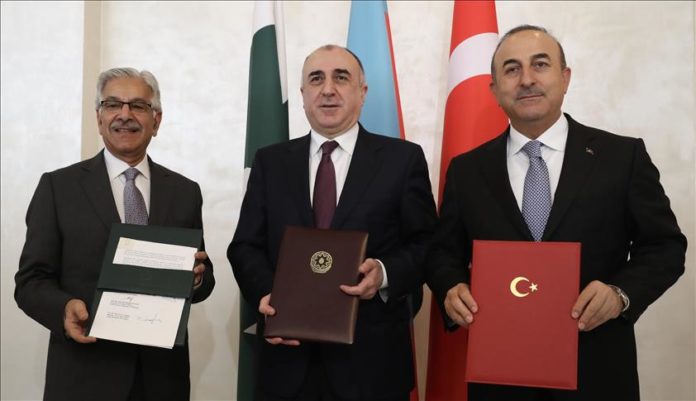Pakistan, Azerbaijan and Turkey are strategic partners. Diplomatic relations among Pakistan, Azerbaijan and Turkey are based on mutual respect, sharing unique commonalities of historical, religious and political nature. After the establishment of the formal diplomatic relations, there was no looking back and ties grew at a steady pace and the sky is the limit for their socio-economic integration, better political understanding and greater regional connectivity.
Infinite Bindings
Pakistan, Azerbaijan and Turkey have cultural, social, religious and civilizational ties. Right from the beginning, the governments and the political leaderships of these countries have been keen to further develop and consolidate the bond of friendship and brotherhood. These countries share commonality of opinion on different regional and international issues and supported each other on challenges faced. Turkish current presidency of the OIC has revolutionized its aims, utility and objectives. Azerbaijan and Turkish support on the issue of Kashmir create “strategic balance” in the region.
Trustworthy Bilateral Relations
Bilateral relations among these countries are constantly on the move, trade and economic ties have already been given new dimensions. Exchange of visits of Azerbaijan, Turkey and Pakistani leaders as well as the other high-level delegations have played a pivotal role in cementing their socio-economic integration, greater regional cooperation and the last but not the least energy cooperation.
Greater Socio-Economic Integration
These countries have meaningful MOUs and agreements in political, economic, strategic, social, humanitarian, cultural and other sectors that were signed during these visits formed a solid legislative base. Further increasing of military cooperation among these countries has developed a new “strategic dimension” to their relationships which would be game changer in the days to come.
Misleading Information
Being regional expert on Azerbaijan and Central Asia, I personally witnessed an article published in daily English newspaper “Daily Times” on December 25, 2017 entitled Can Harissa act as an ice-breaker between Armenia and Pakistan? written by Sarmad Iqbal.
It lacked even basic knowledge about Azerbaijan’s national history, political struggle, and geography. It had some serious factual errors which need to be rectified in order to showcase the true picture of Azerbaijan and its principal policies towards Armenian and South Caucasus. Writer of this article seemed to be ill informed, biased and slanted towards Armenia. Sarmad Iqbal categorically tried to tarnish the bilateral relations of both the countries. So called pseudo-intellectual of this article had a blind inclination towards Armenia, the aggressor and “cultivation of genocide”.
Azerbaijan: A Civilized Country
The Republic of Azerbaijan is a civilized country whereas Armenia has already been labeled as conspirator. Azerbaijan is a decent country whereas Armenia has been categorized as destructor of humanity and enemy of economic development too. It has been notorious for its ethnic cleansing, prejudice, bigotry and state terrorism.
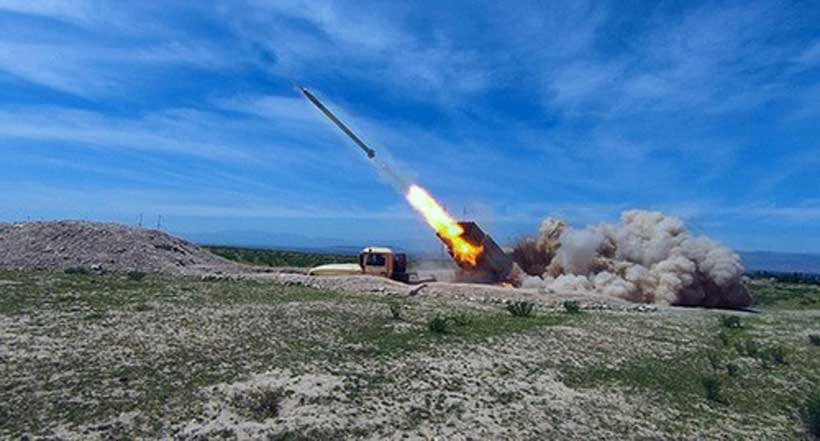
Nagorno-Karabakh conflict: Bleeding Wound of Azerbaijan
The Nagorno-Karabakh conflict is the bleeding wound for the Republic of Azerbaijan which is also a looming security threat to the whole region of South Caucasus. Azerbaijan’s successive leaders and people have been striving hard to resolve Nagorno-Karabakh conflict with Armenia which shows its firm belief in diplomacy and dialogue.
Constant Efforts of Azerbaijan
For the last 26 years the Republic of Azerbaijan has had been trying its best to resolve the Nagorno-Karabakh within the “frame of possibilities” under true spirits of international law, rule of sovereignty, respect of human rights and the last but not the least, mutual respect.
Azerbaijan Principal Stance
Right from the beginning, the government of Azerbaijan’s took a principled stance that “Nagorno-Karabakh is an “integral part” of it. It has been using all diplomatic means to achieve the desired goal of de-occupation of Nagorno-Karabakh and seven adjacent districts under illegal occupation of Armenia. Armenia has had been maintained aggressive policy towards people of Azerbaijan people living in territory of Nagorno-Karabakh and seven other regions of the country.
Armenia: An illegal Occupant
Armenia occupied more than 20 percent of Azerbaijan whereas Nagorno-Karabakh remained an ancient and historical part of Azerbaijan. Now the continued occupation of Azerbaijani territories by Armenian armed forces is a threat to peace and stability in the South Caucasus, as well as a source of destabilization for the region in the future. More than one million of Azerbaijanis became refugees and internally displaced persons.
Armenia’s Ethnic Cleansing
Armenia conducted the policy of ethnic cleansing against Azerbaijanis in Armenia, Nagorno-Karabakh and seven other regions of Azerbaijan. According to Azerbaijan’s official figures over 3,800 people went missing due to Armenian aggression. Moreover, 872 out of 3,868 missing people were captured or became hostages of Armenian soldiers during intense combat action, and are currently kept in caption by them. “They are 591 military personnel and 291 civilians. The civilians include 29 children, 98 women and 111 elderly people.
Armenia: An Ultimate Aggressor
The Republic of Azerbaijan is not an aggressor as claimed by Sarmad Iqbal. Right of Azerbaijan on Nagorno-Karabakh territories is even recognized by the United Nations Security Council which adopted four resolutions 822, 853, 874 and 884 condemning the use of force against Azerbaijan and the occupation of its territories in 1993. It reaffirmed respect for the sovereignty and territorial integrity of Azerbaijan, reconfirmed that the Nagorno-Karabakh region is an integral part of Azerbaijan and demanded the immediate, full and unconditional withdrawal of the occupying forces from all the occupied territories.
Azerbaijan’s Demands
Moreover, it demanded, including in the first place the withdrawal of the occupying forces from the occupied territories of Azerbaijan, have still not been implemented, and the mediation efforts conducted for the last 20 years within the framework of the Organization for Security and Cooperation in Europe (OSCE) have also yet to yield desired results.
Act of Barbarism
Azerbaijan never used violence against Armenia as depicted by Sarmad Iqbal in his disorganized, disarrayed and misinformed article whereas Khojaly genocide was an ethnic cleansing of Armenia forces against helpless Azerbaijanis. It was an act of barbarism and naked use of military power but it could not produce any dint to the spirits of Azerbaijanis and Kashmiris who are still trying to liberate their occupied areas from Armenia and India.
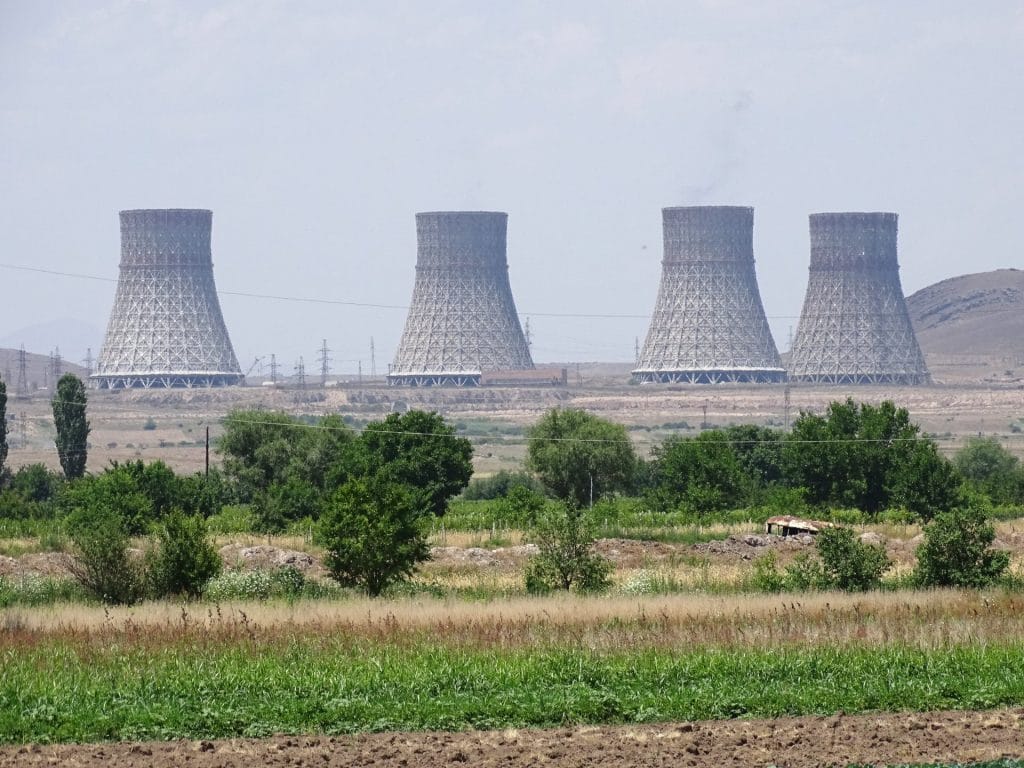
Nagorno-Karabakh conflict: Potential “Security threat” to south Caucasus & EU
Nagorno-Karabakh conflict is a potential “security threat” to South Caucasus and the European Union as well. Moreover, Armenia’s outdated Metsamor Nuclear Power Plant (NPP), one of the most dangerous industrial facilities in the world, continues to threaten South Caucasus and the EU. The International Atomic Energy Agency (IAEA), the U.S. and other western states have already objected to the reopening of the Metsamor NPP. Washington believes the design of the 407-megawatt Metsamor reactor is one of the world’s most dangerous.
Armenian Metsamor Nuclear power plant (NPP): A Looming Regional Security Threat
The EU has also branded the Metsamor NPP as a “serious danger” to the entire region. To protect their people the regional countries, Azerbaijan, Turkey, and Georgia have repeatedly urged Armenia to close the outdated Metsamor NPP immediately. However, Armenia still does not attach any particular importance to nuclear safety, which is a gross violation of the protocols of IAEA too.
Besides, the findings show that the Metsamor NPP was built in a nine-point seismic zone, while its reactor’s seismic resistance is designed for earthquakes with eight-point magnitude. Therefore, the NPP will not survive in case of an earthquake forcing nine points.
Given high seismic activity in the region, if a serious accident happens at the Metsamor NPP, not only Armenia, but also all the countries of the South Caucasus and Middle East regions would be badly affected in terms of severe health issues, drastic decrease in human fertility, lessening of agricultural productivity, polluted waters and seas and other problems.
Irresponsible Attitude of Armenia
Due to irresponsible attitude of Armenia today, all the countries in the region, including Iran, Turkey, Georgia, Russia and Azerbaijan are exposed to the threat of suffering the same fate of the Chernobyl and Fukushima NPPs. Rather than shutting down an old Metsamor nuclear power plant, which is located in a seismic zone, the Armenian government decided to extend its service life for a few more years. Thus, the reckless Armenian government puts the whole region at risk by its irresponsible attitude to the problem. The international community should join forces to make Armenia to reckon with the interests of its neighbors and to provide security of their population.
Armenian War Obsession
Its constant purchase of arms may start a race of arms in the region due to which brighten prospects of economic development may be diminished. Armenian martial posturing has been rated as serious security threat to all the regional countries. Armenian persuasion of Nazi ideology may also spoil the basic core and philosophy of the European Union, modern political system and democratization. Its systematic and secretive ways and means to maintain “status quo” would be disastrous for the region and beyond.
Nagorno-Karabakh Conflict’s Multiplier Effects
Nagorno-Karabakh and its seven adjacent districts namely Kalbajar, Lachin, Qubadli, Jabrayil, Zangilan, Agdam and Fuzuli have been under illegal occupation of Armenia for more than 26 years. Life has been stagnated. Economy has been worsened. Social life and society has been sieged and caged in all the illegally occupied territories. Moreover, climate, nature and natural resources have been polluted because of criminal psycho of Armenia. Physical infrastructure has been demolished. Cultural buildings have been flattened. Agricultural activities have also been diminished in these areas.
Colossal Collateral Damages
According to many research reports due to Nagorno-Karabakh conflict more than Azerbaijan 890 cities, villages and settlements, 102 thousand dwelling houses, 7000 public buildings, 695 healthcare facilities, 693 secondary schools, 927 libraries, 310 industrial and building enterprises, 464 historical monuments and museums, 6 state theaters and concert studios have been completely destroyed in the occupied territories. Azerbaijan’s Policy of Refrainment
Azerbaijan always follows the policy of refrainment whereas Armenia always pursues the path of escalation. Azerbaijan has always been open for dialogue whereas Armenia undertakes consistent measures to consolidate the results of its occupation policy and to maintain unacceptable and unsustainable status quo. It undermines efforts for the peaceful resolution of the conflict through hidden activities. Holding of military drills, census, resettlement of Syrian Armenian, referendum and elections are the serious violations of international law and ceasefire agreement.
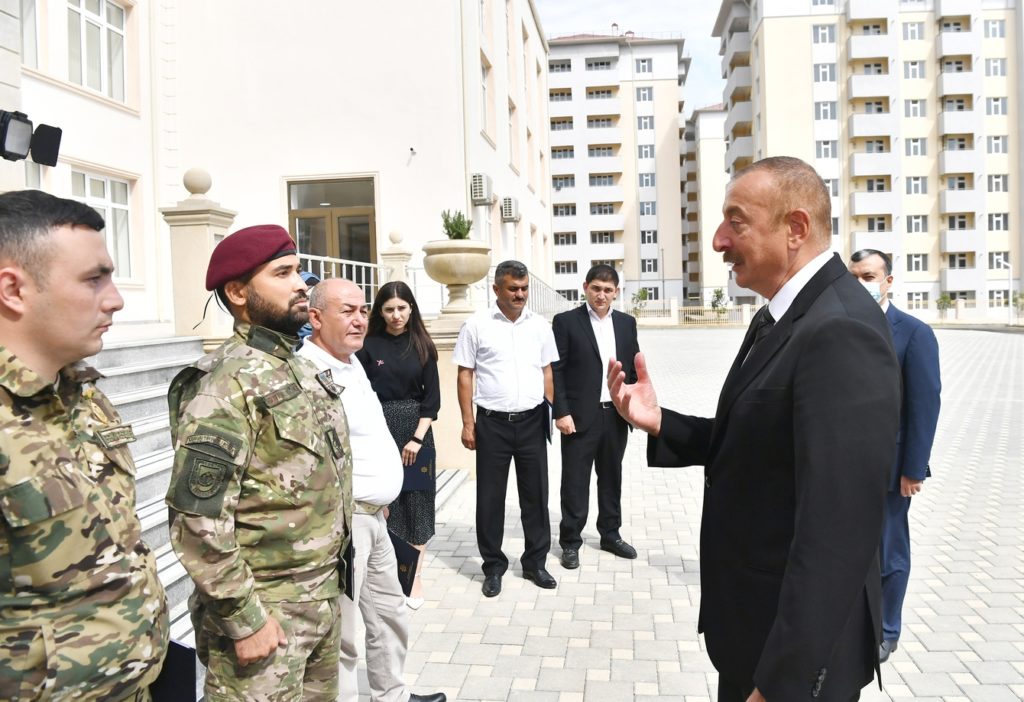
Azerbaijan’s Policy of Peace
Azerbaijan never violated truce whereas Armenia has been conducting systematic, deliberate and targeted attacks on civilian population encompassing inter alia women, children and elderly residing in the densely populated areas adjacent to the frontline.
Moreover, Armenia’s direct and deliberate attacks against the Azerbaijani civilian population and civilian objects, constitute a serious violation of international humanitarian and human rights law, in particular the 1949 Geneva Conventions and Additional Protocol I thereto, the Convention on the Rights of the Child and the Convention for the Protection of Human Rights and Fundamental Freedoms.
Azerbaijan has repeatedly brought to the attention of the international community that the primary reason of the tension and incidents in the frontline and major impediment to the resolution of the conflict is the unlawful presence of the armed forces of Armenia in the occupied territories of Azerbaijan.
Armenia Changes Demographic, Cultural and Physical Character
Armenia illegally changes the demographic, cultural and physical character of the occupied territories. Moreover, it engages in negative economic and other activities, including transfer of Armenian population into these territories with the ultimate goal change the nature of demography. Armenia also undermines and puts under jeopardy the regional and international peace and security. It is also against the true spirits of international law.
Armenia Cultural & Heritage Terrorism Armenia is notorious for cultural and heritage terrorism. Since the beginning of the Nagorno-Karabakh conflict and occupation of Azerbaijani territories, Armenian aggressors badly looted Azerbaijan’s rich cultural treasures. Armenian is purposefully extinguishing Azerbaijan’s culture, heritage and historical places, buildings and monuments.
Armenia completely destroyed historical & architectural monuments 1200, looted museums 27, indulged in illegal export of valuable items 100,000, demolished religious monuments 152, ruined mosques 62, burnt books 4,600,000, devastated libraries/ Holy Quran and rare Islamic manuscripts 927. Armenia “the mosque destroyer” cannot be friend of any Muslim country. Moreover, “human’s culture and heritage” is a “common asset” to all and diversity of humanity, faith, sect, belief and political understanding must be valued and respected.
Azerbaijan’s Lawful Right on Nagorno-Karabakh Azerbaijan has been highlighted its lawful right on Nagorno-Karabakh and its seven adjacent districts at every regional as well as international forum including, UN Security Council, World Economic Forum, Economic Cooperation Organization, Organization of Islamic Countries, Munich Security Council, OSCE Minsk Group, European Parliament and World Cultural Forum etc. UN Security Council adopted four resolutions about illegal occupation of Armenia and instructed it to de-occupy Nagorno-Karabakh and its seven adjacent districts which have not yet been implemented because of “dubious character of international power brokers and “double standard” of international organizations.
OIC: Diehard Supporter
Organization of Islamic Countries (OIC) is die hard supporter of Azerbaijan and always advocates its right over Nagorno-Karabakh and its seven adjacent districts. It always condemns Armenian military atrocities at line of contact. It has also formed a contact group on this specific issue. Non-Aligned Movement (NAM) and Organisation of African Unity (OAU) have also showed their support to Azerbaijan against Armenia, the illegal occupant.
Turkey’s Support to Azerbaijan
While visiting Baku, Turkey’s President Recep Tayyip Erdogan termed the Nagorno-Karabakh issue as bleeding wound for Turkey as for Azerbaijan. “Unfortunately, unless Armenia ends occupation of the Azerbaijani territories, this issue will not be resolved,” he said. He stressed the occupation should be immediately ended on the basis of the principles of territorial integrity, sovereignty and inviolability of borders of Azerbaijan. He also strongly condemned provocations targeting the civilian population along with Armenia’s occupation policy. Furthermore, while addressing to the72nd session of the UN General Assembly he once again stressed that restoration of the territorial integrity of Azerbaijan and Georgia must for peace in the South Caucasus region.
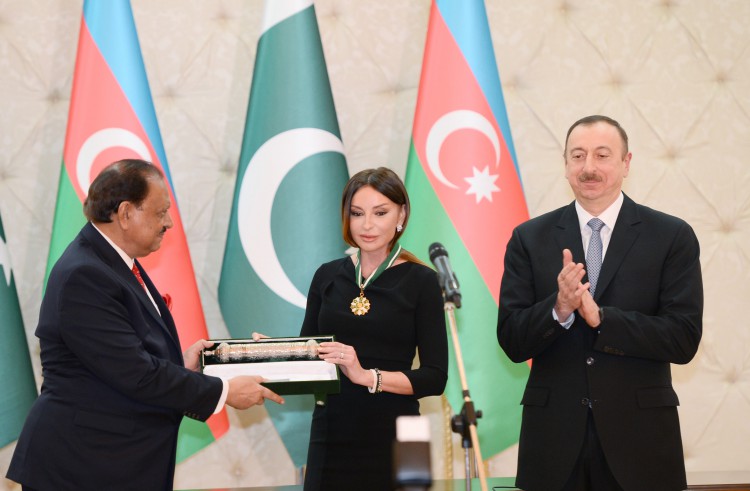
Pakistan’s Brotherly Association with Azerbaijan
Pakistan still does not recognize Armenia as an independent state because of its occupation of Azerbaijani territories. Its Parliament and Senate and the standing committee on foreign affairs has demonstrated solidarity with the government and people of the Republic of Azerbaijan. It condemned the occupation of Azerbaijani territories by Armenia and the genocide committed by Armenian armed forces in the Azerbaijani town of Khojaly on February 26, 1992 against civilian population. Turkey, Saudi Arabia and even Djibouti did not establish diplomatic relations with aggressor Armenia because of illegal occupation of Azerbaijani territories.
Pakistan reaffirmed the sovereignty and territorial integrity of the republic of Azerbaijan within its internationally recognized borders. It demanded implementation of resolutions of the UN Security council and the UN General assembly on immediate, complete and unconditional withdrawal of all Armenian forces from all the occupied territories of Azerbaijan and calls upon the international community and international organizations to urge Armenia for the implementation of these decisions. It supported the efforts of the Republic of Azerbaijan to resolve the Armenia-Azerbaijan Nagorno-Karabakh conflict by peaceful means. But sorry to say, so-called Pakistani Sarmad Iqbal writer has tried to spoil the trustworthy bilateral relations of Pakistan with strategic partners like Azerbaijan and Turkey with his misconceived article published in the daily times.
Falsified Fantasies
Sarmad Iqbal by claiming Harissa an Armenian dish falsified fantasied it icebreaker between Pakistan and Armenia. First of all Harissa is not an Armenian dish. It is originated from Arabian soil and nourished from the experience of centuries. Poor fellow Sarmad Iqbal does not know mere Harissa cannot be icebreaker because of Armenian hideous crimes against humanity and helpless Azerbaijan people living in occupied areas. It is matter of human blood not baking powder. It is not matter of taste alone it is also matter of trust, traditions and tumults where Azerbaijanis laid their precious lives for their beloved country.
Baseless Linguistic Doctrine
Sarmad Iqbal’s hypothesis based on “linguistic doctrine” is not valid in the context of Pakistan and Armenia. Pakistan and India being two different countries do share unlimited commonalities of words which are not deemed to qualify to ignore its perpetual state’s terrorism, atrocities and crimes against Kashmiris for so many years. Being two different nations, we still share commonalities of history, culture, heritage and traditions but there is no compromise and substitute on national’s sovereignty, and territorial respect. Azerbaijan’s culture is rich enough to flourish and does not require any “alien land” like Armenia’s borrowed concept of food, music, living or survival. Azerbaijan is full of life, color, energy and humanity. Azerbaijan is icon of multiculturalism whereas Armenia is the champion of ethnic cleansing.
The said writer in his article purposefully mentioned the name of Aghri Dagh as Ararat plain. Aghridagh (Armenians purposefully call it as Ararat) is a mountain in historical part of Turkey which Armenia claims as the territory of “Great Armenia (United Armenia), even showing some other Turkish territories in the constitution of Armenia as Armenian territories without any evidence as well. It is violation of international law. People of Azerbaijan and Turkey are patriots having emotional attachment with its geographies, lands, seas and mountains and such stupidity of this writer may not be good for both the countries.
Azerbaijan: Fascinating Country
The Republic of Azerbaijan is a fascinating country where Armenia is a fanatic in its nature. Azerbaijan has achieved tremendous socio-economic prosperity, geo-political stability and geo-strategic importance after the restoration of independence in 1991 under the leadership of National Leader H.E. Heydar Aliyev and President H.E. Ilham Aliyev whereas brain drain is the hallmark of Armenian macro-economy.
Azerbaijan: A Prosper Country
Azerbaijan is a prosper country and Armenia is a poor country. Azerbaijan is now a regional economic leader in the South Caucasus and an important economic actor in the Caspian region. Its GDP is 75 percent of South Caucasus. It introduced market economy, economic liberalization and privatization which motivated private sector to lead. It attracted more than $200-250 billion FDIs in the country, the highest in the region. Azerbaijan has been appreciated by all major international institutions, including the International Monetary Fund, World Bank, European Bank for Reconstruction and Development, Islamic Development Bank, and Asian Development Bank for its rebuts socio-economic development during the last 26 years whereas Armenia has been bracketed as “failed state”.
Azerbaijan: Pride of all Muslim Countries
The development and achievements of Azerbaijan is a pride of all Muslim countries and an example of good governance for a number of countries. Moreover, Azerbaijan Democratic Republic was the first democratic republic in the Muslim world. One of the achievements of the republic was that women were granted with the right to vote much earlier than in many European countries whereas Armenia is seriously denying basic human rights to its citizens due to which human misery is rampant, unemployment, price hike and debts burden are at sky high in the country.
Azerbaijan’s Contributory Role
Azerbaijan has now become a force that plays an important role in determining the course of regional and global politics. It had been elected a non-permanent member of the UN Security Council. Azerbaijan honorably served its term in the Security Council and continues its active participation in the international life. It has become the center of a number of global projects, a platform of dialogue between civilizations and cultures, the venue for major cultural and sporting events whereas Armenia has been caged in deep isolation and denial of true norms of democracy is the order of the day in it.
Further Strengthening of Diplomatic Relations
Further strengthening of diplomatic relations among Pakistan, Azerbaijan and Turkey are getting momentum in these days. Their relations are “Game Changer” which has further strengthened after various reciprocal high officials visits during which leaders discussed on the high-level political cooperation. Recent reciprocal high official visits have totally transformed concept of bilateral relations. Now Pakistan, Azerbaijan and Turkey are more connected because of greater socio-economic integration which has also further brightened the future prospects of foreign direct investments (FDIs), joint ventures (JVs) and energy cooperation. These countries signed a joint declaration which depicted their resolve to enhance and diversify the already dynamic relations. Both countries showed satisfaction on political relations which now are steadily growing.
Enhanced Military Cooperation
Pakistan, Azerbaijan and Turkey have also explored chances of further military cooperation and defense production. Azerbaijan and Pakistan have a very good cooperation in the military sphere. Pakistan, Azerbaijan and Turkey have unique plans regarding the joint military drills of their armed forces. A transnational military-industrial complex between Pakistan, Azerbaijan, and Turkey is now under serious consideration.
Dawn of Trilateral Cooperation
Most recently, the three countries held their first trilateral talks in Baku. The three countries have defence related agreements in the past with each other, but are now looking towards creating a trilateral format of defence cooperation, which could prove vital given the strategic location each country has in its own region. The foundation of the new trilateral Azerbaijan-Pakistan-Turkey cooperation was laid and 1st Meeting of Ministers of Foreign Affairs held in Baku, on November 30, 2017. The Pakistan-Azerbaijan-Turkey trilateral format has emerged as an innovative and important platform for devising common strategies and developing several projects for joint benefits of the countries.
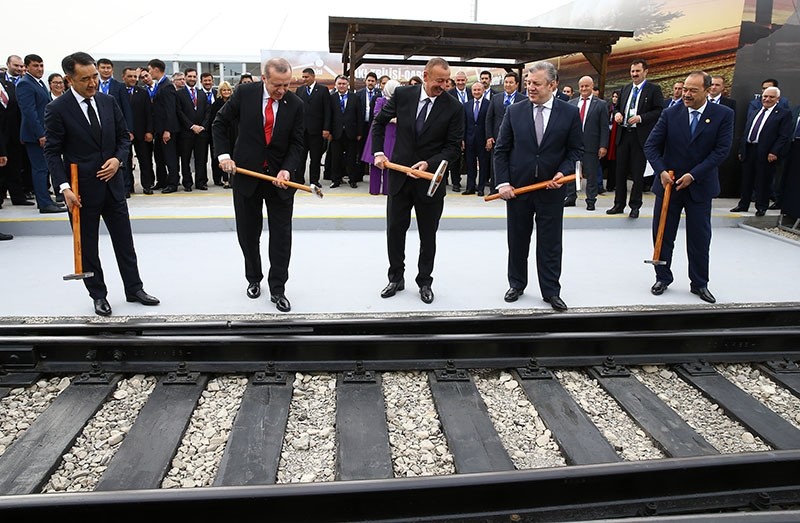
Strategic Importance of Baku-Tbilisi-Kars Railway
Turkey’s Foreign Minister has encouraged Pakistan to use the Baku-Tbilisi-Kars railway, which was built on the basis of the Azerbaijani-Georgian-Turkish interstate agreement. Since Turkey is already a close ally of Azerbaijan, given their history and involvement with Armenia, Pakistan’s addition to the mix will also aid Baku in their struggle. It could also mean Turkey and Azerbaijan reciprocating with increased support to Pakistan over the Kashmir dispute.
Earlier the three countries closely cooperate in the defence industry in a bilateral format which should be transformed into a tripartite format of cooperation wherein these three countries can establish joint ventures for the production of defence products and develop cooperation.
Strategic Importance of Trilateral Cooperation
After laying foundation and starting trilateral cooperation Armenia became more disappointed with this cooperation and started to use all its possibilities to spoil this cooperation, even using such unexperienced persons as Sarmad Iqbal from Pakistan. The said writer claimed that Pakistan is harsh towards Armenia because of Azerbaijan and Turkey which is baseless and factually incorrect. Pakistan, Azerbaijan and Turkey are brotherly countries and there are no hidden agendas between the three, keeping in view their relationship in the historical context along with the regional peace and stability.
7th Heart of Asia-Istanbul Process Moreover, the 7th Heart of Asia-Istanbul Process meeting in Baku is a timely and relevant event which shows the collective commitment of the participating countries to work together to provide peace in Afghanistan.
Joint Declaration
The 7th Ministerial Heart of Asia-Istanbul Process (HoA), titled “Security and Economic Connectivity towards a Strengthened Heart of Asia Region”. adopted the Baku Declaration on December 1 2017. It reaffirmed its commitment to the UN Charter and its enshrined principles of sovereignty, independence, territorial integrity, inviolability of internationally recognized borders, sovereign equality of nations and non-intervention in the internal affairs of other states as well as universally recognized principles and norms of international law. It reiterated the importance of increased political dialogue and consultation between the countries comprising the Heart of Asia for a stable, peaceful and prosperous region.
It reiterated the obligation to refrain from the threat or use of force against the political independence, territorial integrity, or sovereignty of any state. It reaffirmed its commitment to develop friendly relations among HoA countries based on good neighborly relations, peaceful co-existence, and non-interference in the internal affairs of other countries.
It strongly called for concerted regional and international cooperation to ensure elimination of terrorism in all its forms and manifestations, including dismantling of terrorist sanctuaries and safe havens, preventing and interdicting the movement of terrorists and terrorist groups, including foreign terrorist fighters, across the countries of the Heart of Asia region, as well as disrupting all financial, tactical, logistical or any other support for terrorism without any distinction.
Irrational Decision of Armenia
The Armenian President Sargysyan, in his speech during the 72nd Session of the UN General Assembly on 19 September 2017, made groundless claims blaming Turkey for the delay in the ratification of the Protocols and stated that they will declare the Protocols null and void in the absence of progress and meet the spring of 2018 without those Protocols. The statement states that despite Armenia’s negative stance on the Protocols, Turkey is committed to the primary clauses of the Protocols.
Turkey Logical Response
Turkey says these Protocols are still on the agenda of the Turkish Grand National Assembly’s Foreign Affairs Commission and for their ratification, it is essential that a favorable political atmosphere and peace in the South Caucasus is secured. Turkey’s primary target pertaining to the Protocols process is to realize the normalization of relations between Turkey and Armenia in such a way that, comprehensive peace and stability in the South Caucasus is provided. In this vein, it is necessary that in the settlement of the Nagorno-Karabakh conflict progress is achieved, based on Azerbaijan’s territorial integrity and in light of the relevant resolutions of the UN Security Council. In any case, Armenia must put an end to its invasion of Azerbaijan’s territories.
On its part, Azerbaijan has urged neighbor Armenia to end an occupation of Azerbaijani lands and stop propagating baseless claims against Turkey for sustainable peace and security in the region.
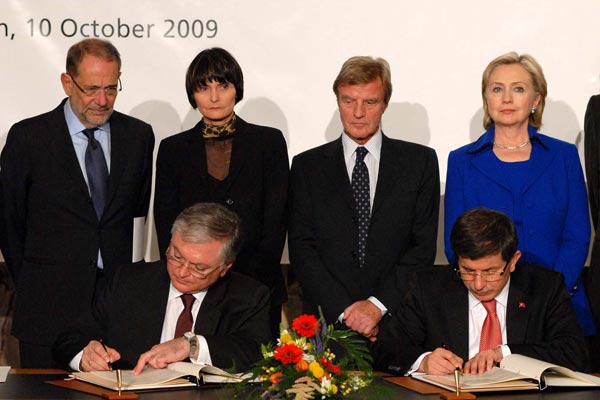
Turkey-Armenia
Previously, Turkey and Armenia signed two protocols to rebuild diplomatic ties and bilateral relations in 2009. The protocols proposed an impartial scientific examination of historical records and archives, as well as the mutual recognition of boundaries in order to restore confidence between the two nations, in a bid to find solutions to existing problems.
Turkish Foreign Ministry in a statement on Dec. 14 rebutted Armenian claims, saying Turkey was still committed to the primary clauses of the protocols and their ratification was on the agenda of Parliament’s Foreign Affairs Commission “despite negative attitude and statements by Armenian officials.
Baseless Allegations
Moreover, “The Armenian allegations of &” genocide&” in 1915 against Turkey are baseless and examples of “fraudulent history” used for “political gains. Turkey says the deaths of Armenians in eastern Anatolia in 1915 occurred after a group of Armenian nationalists sided with invading Russian forces and revolted against the Ottoman army. The subsequent relocation of Armenians resulted in numerous casualties. Turkey describes the events of 1915 as a tragedy for both sides and Ankara has repeatedly proposed the formation of a joint commission of Turkish and Armenian historians, along with international experts, to address the issue.
Armenia uses the “genocide” discourse for political gains but does not mention about Armenian atrocities in Anatolia during World War I, in 1918 Baku or the 1992 Khojaly Massacre, where 613 Azerbaijanis were killed by Armenian forces during the Nagorno-Karabakh War.
Concluding Remarks
Pakistan, Azerbaijan and Turkey relations are based on a concept of “shared prosperity” and on rigorous commercial diplomacy and are consolidated on greater socio-economic connectivity, better political understanding and geo-strategic cooperation and increasing military cooperation. The three countries have unlimited opportunities for further strengthening of bilateral relations. The further strengthening of socio-economic ties and the development of trade and business Relations among these countries will be beneficial to all.
Pakistan, Azerbaijan and Turkey have reiterated further strengthening existing bilateral ties through enhanced interaction between the public and private sectors by using rigorous commercial diplomacy, regional connectivity and greater socio-economic integration. All three countries are also very keen to further enhance bilateral, economic and commercial relations with special focus on improving the deteriorating energy situation in the country. The government of Pakistan considers the central Asia region and South Caucasus reliable security partner in the rapidly changing geo-political and geo-strategic world. In the ongoing war against terrorism and mushroom growth of non-state actors, rise of human and drug trafficking nexus, achieving greater socio-economic prosperity, better political understanding and greater regional peace and stability, the governments of Pakistan, Azerbaijan and Turkey are now initiating serious “Security Dialogue” to mitigate these spillover repercussions. The start of trilateral military cooperation among Pakistan, Azerbaijan and Turkey is giant step towards greater regional peace, harmony and security. It will provide a “Strategic cushion&” for all the participating countries.
The government of Azerbaijan has been remained center of interfaith harmony, tolerance, dialogue and development since its inception. It initiated many meaningful international forums and as well as conducted various seminars and conference to showcase its strong commitment towards international dialogue, partnership and cooperation between Muslim and Europe. It also started “Baku Process” which was also supported by the UN whereas Armenia has been isolated due to its perpetual aggressive policies and actions against all the regional countries in South Caucasus. The Republic of Azerbaijan’s main principles and requirements in the peace process are i.e. Armenia’s withdrawal from the occupied Nagorno-Karabakh and adjacent territories, and Nagorno-Karabakh’s remaining within Azerbaijan. Azerbaijan always expresses its readiness to grant Nagorno-Karabakh the highest status under international law and practice.
Diplomacy is a complicated discipline which requires perfection and greater political understanding about different emerging socio-economic, geo-political and geo-strategic issues. Diplomacy also attaches elements of sensitivity, utmost care of bilateral relations and ostracism of self-prejudice. Sarmad Iqbal must reconcile his personal vested interests and take care about bilateral relations of Pakistan with Azerbaijan and Turkey. We are strategic partners having lots of commonalities of history, culture, traditions and civilization. We have close trade and commerce ties which must not be spoiled by writing an absurd article which has no factual basis. We have strategic trilateral format of cooperation which needs to be further strengthened and productive for the benefits of all the participating countries. Armenia is an aggressor and destroyer of “holy mosque” which cannot be friend of any Muslim country.


